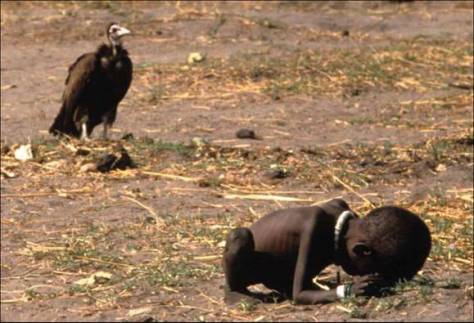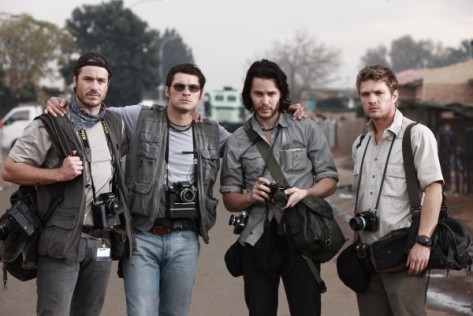Photography recently has become too glamourous. It’s easy to forget the era when photography was mostly left to the press and other professionals. In fact it wasn’t even that long ago when photography was a constant reminder of the shit that happens around the world. These days, with the cheery family photos, instagram posts of cats and those damn selfies, it’s no surprise we forget the power that a strong photograph has.
Maybe what makes a great picture is one that asks a question, you know? It’s not just a spectacle, it’s more than that. I think mine was like that, and Greg’s too. You go out and you see bad things, evil things, and you want to do something about it so what you do is you take the picture that shows it. But not everybody is going to like what they see, you have to understand that they might want to shoot the messenger.
– Kevin Carter
This, of course is Kevin Carter’s pulitzer prize winning photograph.

I’ll start with the condemnation that Carter got for taking this photo and not intervening/helping the child in the photo. Make no mistake, living through the times of the apartheid and documenting the combat, casualties and horror took their toll on Kevin Carter. On 27 July 1994 Carter committed suicide, not a direct result of this photograph but it was certainly contributed. Part of his suicide note read
I am depressed … without phone … money for rent … money for child support … money for debts … money!!! … I am haunted by the vivid memories of killings and corpses and anger and pain … of starving or wounded children, of trigger-happy madmen, often police, of killer executioners … I have gone to join Ken if I am that lucky
This photograph is nothing short of amazing. The composition, framing, exposure it all comes together perfectly in this shot. This photo did more for the world than any other photo in its time. When this photograph won the Pulitzer Prize, it raised the issue of famine and poverty around the world to everyone with access to a newspaper or magazine.
The truth is hard to face for a lot of people, and many were angry about the state of the world. They just took out their anger on the wrong person. Questions were asked about the outcome of the child in the photo, and why he didn’t intervene when he could have just picked her up and taken her to a safe place. I won’t say if what he did was right or wrong, and I certainly can’t say what I would have done in his situation.
What it clear is that the National Press Photographers Association (NPPA) code of ethics states “while photographing subjects do not intentionally contribute to, alter, or seek to alter or influence events”. At the very least he was working under the code of ethics for his profession.
While the fate of the child in the photo likely stayed the same, this photo did more than the simple act of bringing her to safety. It brought the situation in Sudan uncomfortably close and it made you pay attention. That, is what makes a great photograph.

If you are interested in learning more about Kevin Carter and his fellow photographers including fellow Pulitzer winner Greg Marinovich, the movie “The Bang Bang Club” is a great depiction of this true story. It stars taylor Kitsch, Ryan Phillippe and Malin Akerman who all sport great South African accents and is centred around press photography like no other movie. While depicting the difficulties, challenges, risks and rewards of war photography, there is a focus on real human emotions, real events and real politics. Having just finished watching it, I would strongly recommend it and I’ll probably watch it again.
Reblogged this on Sudan Hub Group.